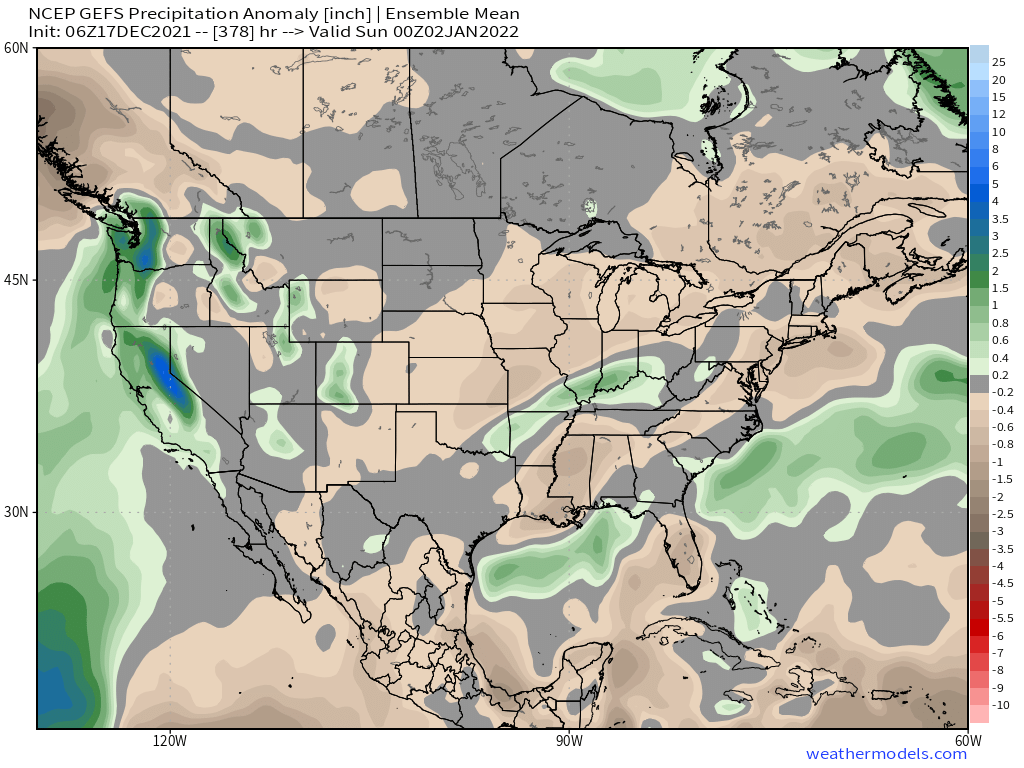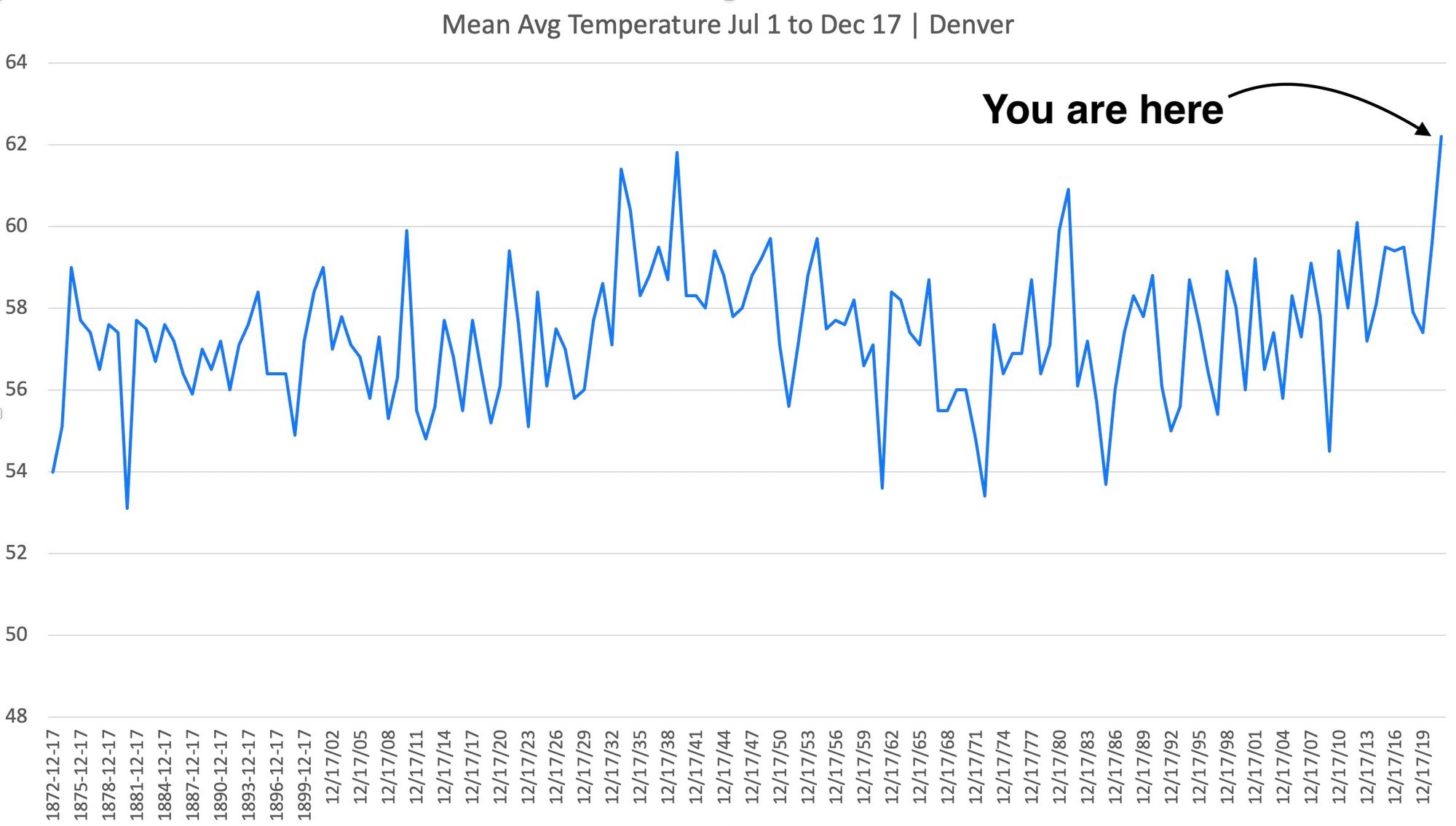
July through mid December 2021 hottest and driest on record for the period in Denver

No, it's not just you. The last six months have been exceptionally warm and dry across the Front Range and Denver metro area. At Denver International Airport we've only managed 1.07" of precipitation since July first.
One inch!
The next driest July - December 17th period on record was in 1939, a year which saw just 1.89" over the same time. 1939 ended in the number 3 spot for driest years on record, only logging 7.58" of precipitation in the city, slightly better than the top spot of 2002 which saw just 7.48".
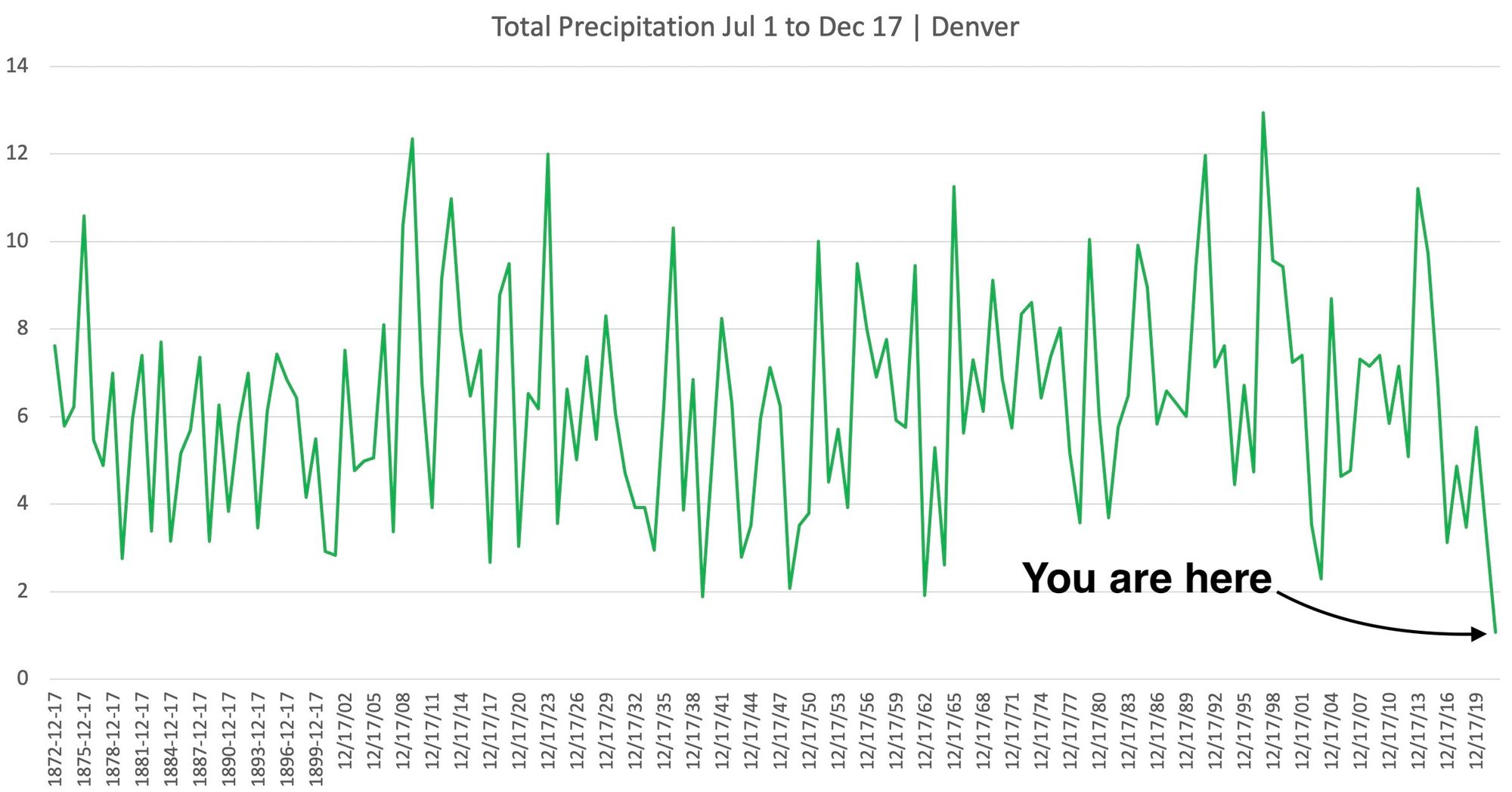
The average temperature between July 1, 2021 and December 17th, 2021 was 62.2°F, nudging out, you guessed it, 1939 (61.8°F) for the top spot.
Only 6 years, including this year, have seen temperatures average 60°F or greater for the July - December time period. Those years are 1933, 1934, 1939, 1981, 2012, and 2021.
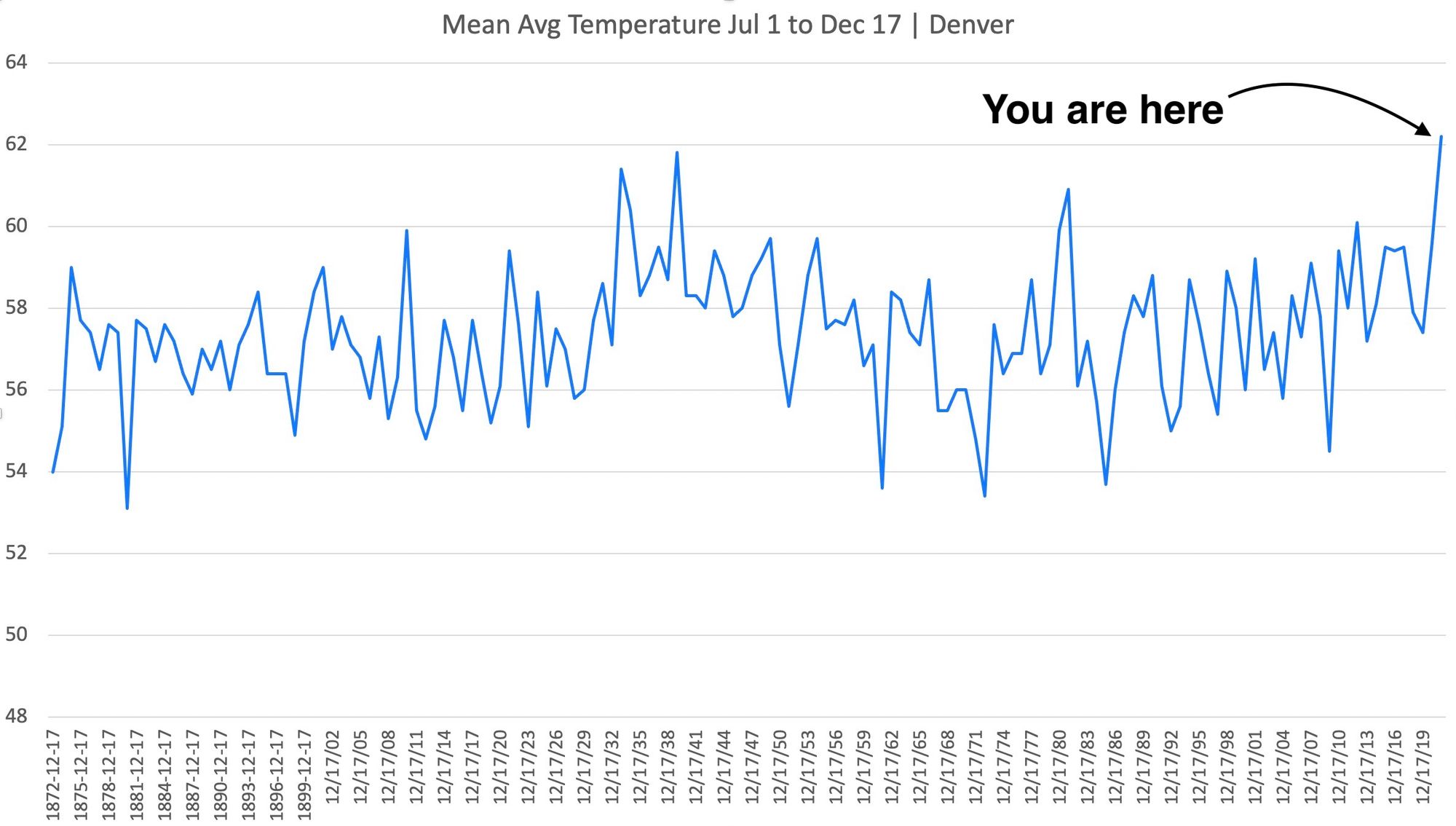
People love to throw around "Dust Bowl" every time the wind blows around here (we live in a dry climate, folks) but this year the number of times the 1930s are showing up when trying to find some historical context is striking. You'll recall Denver set a new record for latest first snow this year, beating out the long-standing previous record set in 1934!
And then of course there was this week's incredible windstorm, with scenes like this playing out all across the south-central plains states on Wednesday:
"DUST BOWL 2021" This video from Main Street in Elkhart, Kan. is just one example of the severe conditions wind and dust are creating across Kansas. https://t.co/RaVNioniQB #kwch12 #storm12 #kswx pic.twitter.com/n2QJdzX0RJ
— KWCH Eyewitness News (@KWCH12) December 15, 2021
A look to the end of the year
Weather whiplash this year means we'll come out in the middle of the road for precipitation, despite a (likely) record-setting hot and dry back half of the year. There's not much hope for precipitation or unseasonably cold weather in the forecast before the end of the year, but never say never?
Through December 17th Denver has picked up 12.4" of precipitation in 2021. The longterm annual average for the city is 14.4". So, we'll end below average this year, but not terribly so, especially considering the last six months!
For temperatures... 2021 will end somewhere in the top 10 for warmest on record, with a mean temperature year to date of 53.0°F. It currently sits in the 7th spot, behind 1934 (1st, 54.8°F), 1981, 2012, 1954, 1933, and 1994.
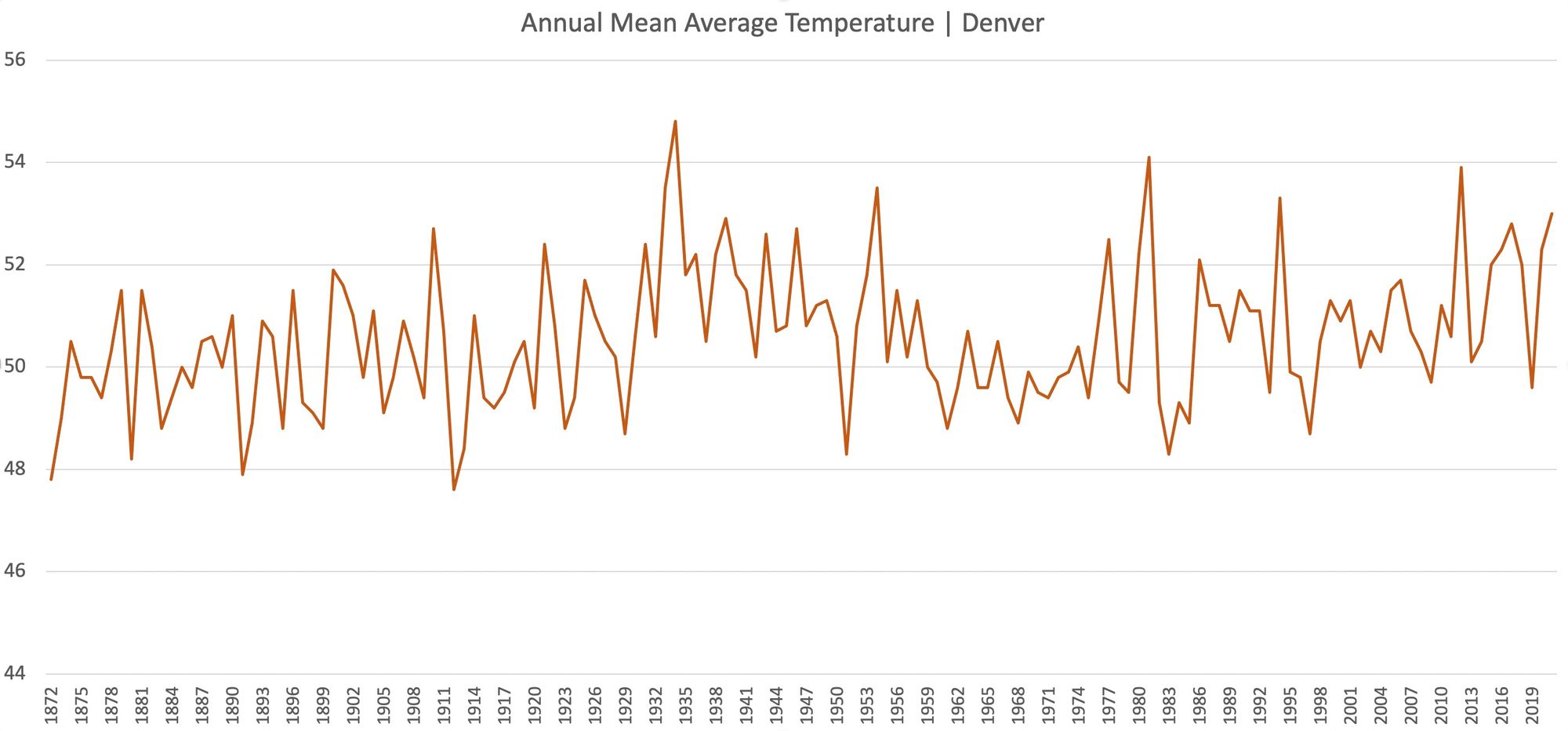
Will July - Dec 2021 end as driest on record?
1939 ended the July 1 to Dec 31 period with 2.15" in Denver (3rd overall) with 1962 holding the current driest on record at 2.09". So we'll need to add almost 1" of precipitation to the books in the next two weeks not to land in the top spot this year.
Of course the likelihood of Denver getting anywhere near an inch of precipitation in the next two weeks is just about zero. The European ensemble mean shows an exactly 0% chance of Denver seeing 0.5" of precipitation (let alone 1") through December 31st:
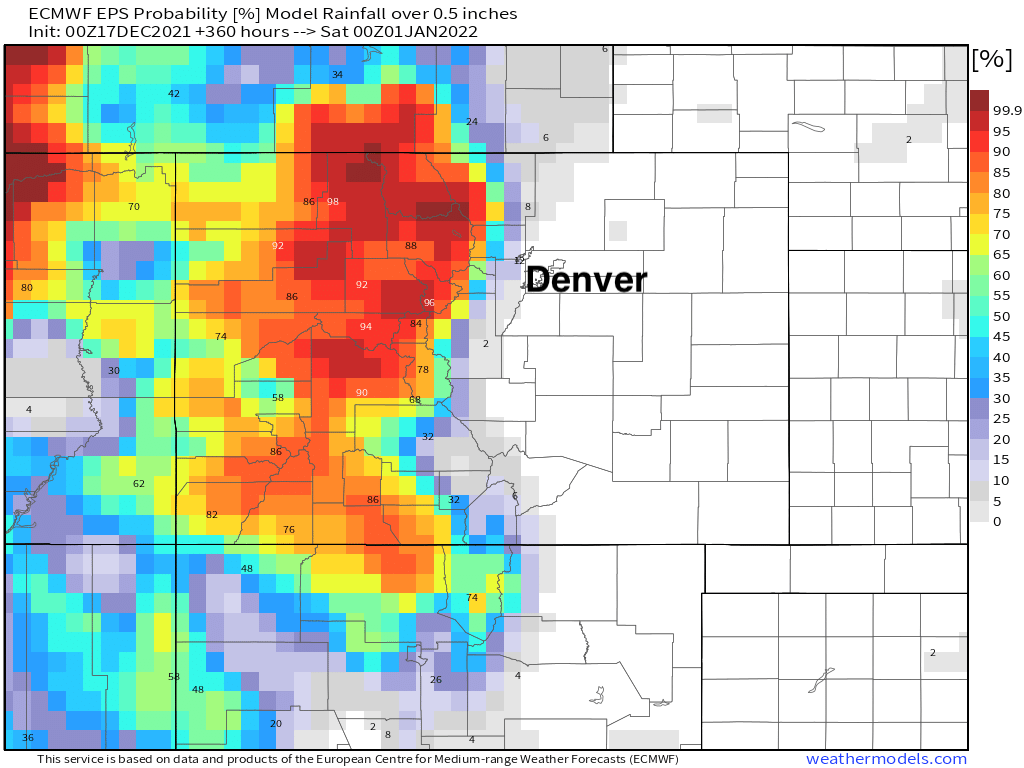
Even the trusty GFS, always good for a fantasy storm in the long-range is coming up dry for eastern Colorado. Through the next 10 days its got no precipitation across the eastern half of the state, with all of the moisture locked up in the mountains (thankful to see some there at least!).
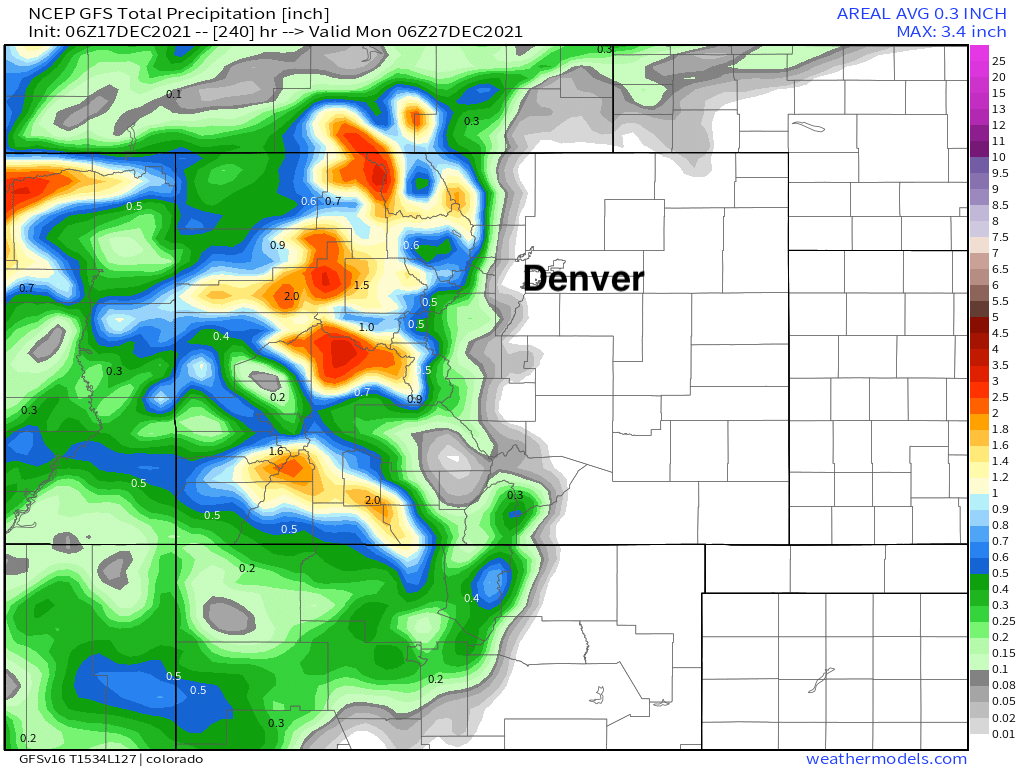
And at a national scale, below average precipitation in the forecast through the end of the year across the Great Plains:
